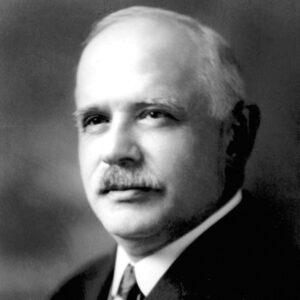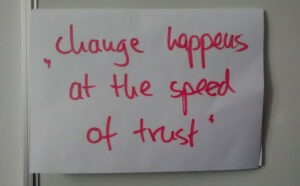August 4, 2011; Source: Humanosphere | The latest annual report from the Gates Foundation contains an admission from Jeff Raikes that the foundation is experiencing a failure to communicate with their grantees.
(T)he key takeaway was that we have some work to do to build more productive grantee relationships. Many grantees said we are inconsistent and unclear about our decision-making process and our programmatic strategies. They also said we should be more welcoming of their feedback.
The team spent almost a year analyzing the survey results and getting additional input. We are currently creating a set of principles about clear communication and high-quality interactions. The goal is to be concrete about what we expect of ourselves and what our grantees can expect from us. The essence of the commitment we’re making to our partners is that we will continue to seek and respond to their feedback. As this letter goes to press we are finalizing plans and timelines, and I look forward to sharing more this fall when I host a series of conference calls with our grantee partners.
While accepting one’s shortcomings and vowing to do better is all well and good, this blogger claims that the story is not new. Here is what the foundation apparently said in its annual report of 2009:
Last year I announced that the foundation would be commissioning a Grantee Perception Report, and I promised that I’d report back about our findings.
They were sobering. We received below-average ratings on many aspects of the grantee experience. We take this feedback very seriously, because we understand that some of these barriers are preventing us and our grantees from maximizing our impact. We don’t see our work as a popularity contest—there is bound to be some tension in even the most productive relationships—but we know that we must do everything we can to make sure that we and our grantees can have the maximum possible impact. We spent much of the past year digesting the results and developing a plan to address them.
And in 2008:
Sign up for our free newsletters
Subscribe to NPQ's newsletters to have our top stories delivered directly to your inbox.
By signing up, you agree to our privacy policy and terms of use, and to receive messages from NPQ and our partners.
My second priority is to improve the quality of our external partnerships, which are our lifeblood. I know we are not doing as good a job as we can in this area. Starting with me, everybody at the foundation needs to make a concerted effort to listen more carefully to what our partners in the field have to tell us.
To that end, we are working with the Center for Effective Philanthropy to survey all of our active grantees this fall. In the past, we’ve received some feedback from our grantees that pointed out areas where they thought we were doing well and other areas, particularly with respect to how we interact with them, where we had room to improve.
And in 2007, Patty Stonsifer said:
First: Listen to your partners…. working with partners requires, more than anything, listening hard to what they have to say. While you’re listening, make sure you’re hearing the full story. The danger isn’t in what people do tell you—it’s in what they don’t.
It’s amazing what people won’t tell you when you have billions of dollars to give away.
-Ruth McCambridge












